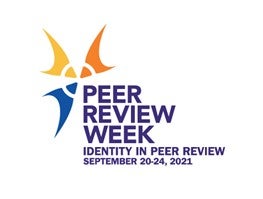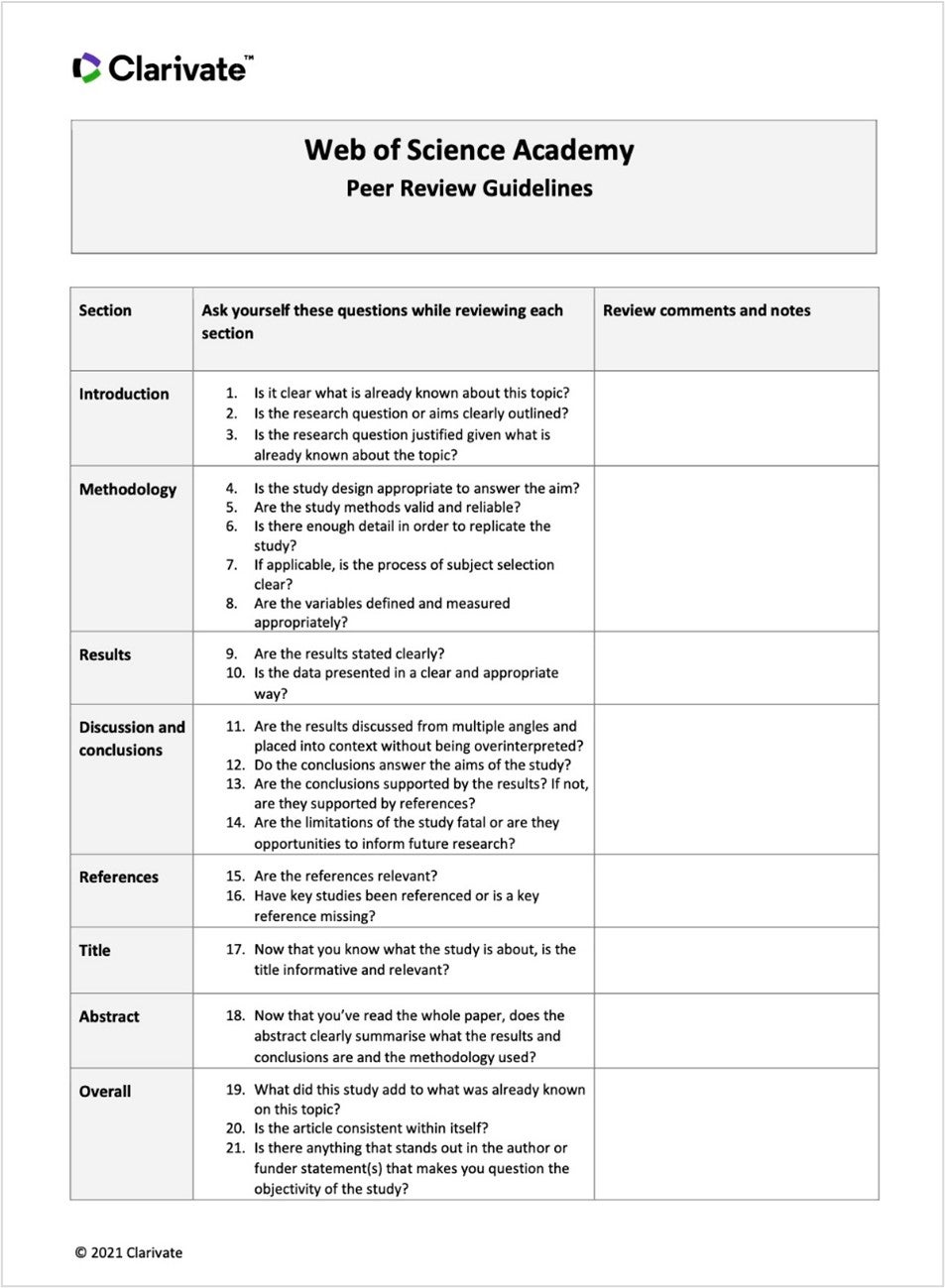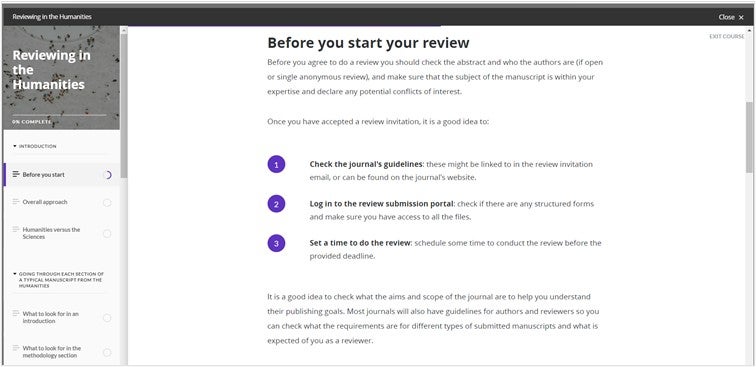We’ve launched a New Web of Science Academy course for Peer Review Week 2021. Enroll now.

The theme for peer review week this year is “identity in peer review.” This can be interpreted many ways and means something different for everyone. In this article, Dr. Julia Mouatt, Head of the Web of Science™ Academy, answers a few questions regarding what identity in peer review means for her. She also shares news about a new course just launched in the Web of Science Academy aimed at researchers in the Social Sciences, Arts and Humanities, and a pilot peer review training program with Cambridge University Press.
What does “identity in peer review” mean to you?
Having worked with early career researchers and in peer review training for several of years now, “identity in peer review” for me is about remembering what your role (identity) as a peer reviewer is. When you agree to review a manuscript for a journal, you agree to take on the identity of an objective peer. Your role is to focus on the research and give constructive critique, detailing what can be done to improve its quality, presentation and readability.
Any personal biases toward the researchers, institutions or schools of thought should not come into peer review. It can be difficult to be aware of unconscious biases, so this is where double anonymous peer review or using a peer review template can be helpful.
- Double anonymous peer review is when the names of the authors are not disclosed to the reviewers, and the reviewers’ identities are not disclosed to the authors. This minimizes biases towards the authors and their institutions, and lets the reviewers focus on the research. The downsides are that it does not let you review manuscripts in context of the authors’ previous work, and it puts the responsibility of finding reviewers without any conflicts of interest solely on the editor.
- Using peer review guidelines as a template, such as the one we have developed for our peer review training courses in the Web of Science Academy, makes it easier to review every manuscript in a systematic way so that every manuscript is reviewed fairly.

Figure 1. Peer review template from the Web of Science Academy.
What does identity in peer review mean for open peer review?
In open peer reviews the identities of reviewers and/or the reviewer reports are published alongside the manuscript. We recently released open and transparent peer review content in the Web of Science full record pages. This together with our reviewer recognition service helps identify who is conducting peer review and give them credit where credit is due.
The main drivers toward open peer review are increased transparency and recognition, and open review reports are also a great learning resource for early career researchers learning about peer review. After several years of journals experimenting with various forms of open peer review, and several journals embracing it, one might ask why more journals are not adopting open peer review models? The main opposition against open peer review is potential bias towards the authors of the paper. Reviewers may also fear retribution for negative outcome reviews. These fears can often be mitigated, and both may be prevented through double anonymous peer review.
What does the future of peer review look like?
Perhaps we will see more journals experimenting with hybrid forms of anonymous and open peer review; for example, double anonymous peer review during the actual peer review process to minimize biases, but open peer review reports and reviewer identities after a manuscript has been published. Agreeing to sign review reports could perhaps still be optional but the content of peer review reports is important for transparency, and a reviewer can still be anonymous and get recognition on Publons.
What is Clarivate and the Web of Science Academy doing this year to improve peer review?
We have received a lot of feedback about how most online resources for early career researchers often have a Natural Sciences focus. Therefore, we are happy to announce the launch of our new course ‘Reviewing in the Humanities.’ It is a version of our ‘Reviewing in the Sciences’ course catered to academics in the Arts and Humanities as well as Social Sciences. Instead of providing tips on reviewing a typical research article, this course gives you tips on reviewing papers specific to the Social Sciences, Arts and Humanities, such as literature reviews, argumentative essays and monographs.

Figure 2. A peak view of the new ‘Reviewing in the Humanities’ course on the Web of Science Academy platform.
Later this year, we will introduce a course focusing on ethical publishing behavior that will cover unconscious biases during peer review, declaring conflicts of interest and well as research and publishing misconduct.
One example of unethical behavior is ghost reviewing. This is where senior researchers invited to review a manuscript pass the review onto a junior colleague who then completes the review. The senior researcher then submits the review as their own. Most journals allow co-reviewing for training purposes if editor permission is provided beforehand. When the review is shared for training purposes, a richer learning experience can be fostered when the senior researcher includes their own review of the manuscript as well as feedback on their junior colleague’s review report. The reviewer who submits the report should acknowledge to the editor all who helped write the review. Publons reviewer recognition also works for co-reviews, so everyone involved with the peer review can get recognition for their work.
This week we are also launching a pilot peer reviewer training program with Cambridge University Press (CUP) through the Web of Science Academy. Participating CUP editors will be matched with an early career researcher completing Web of Science Academy course modules and will together review two manuscripts for a CUP journal. Participating mentees have been contacted and recruited in the past few weeks.
Mentorship in peer review training is important as online training content cannot provide detailed field-specific or even manuscript-specific advice as well as a mentor can. The importance of mentorship also highlights the critical role (identity) that senior researchers play in peer review as mentors to the next generation of peer reviewers.





